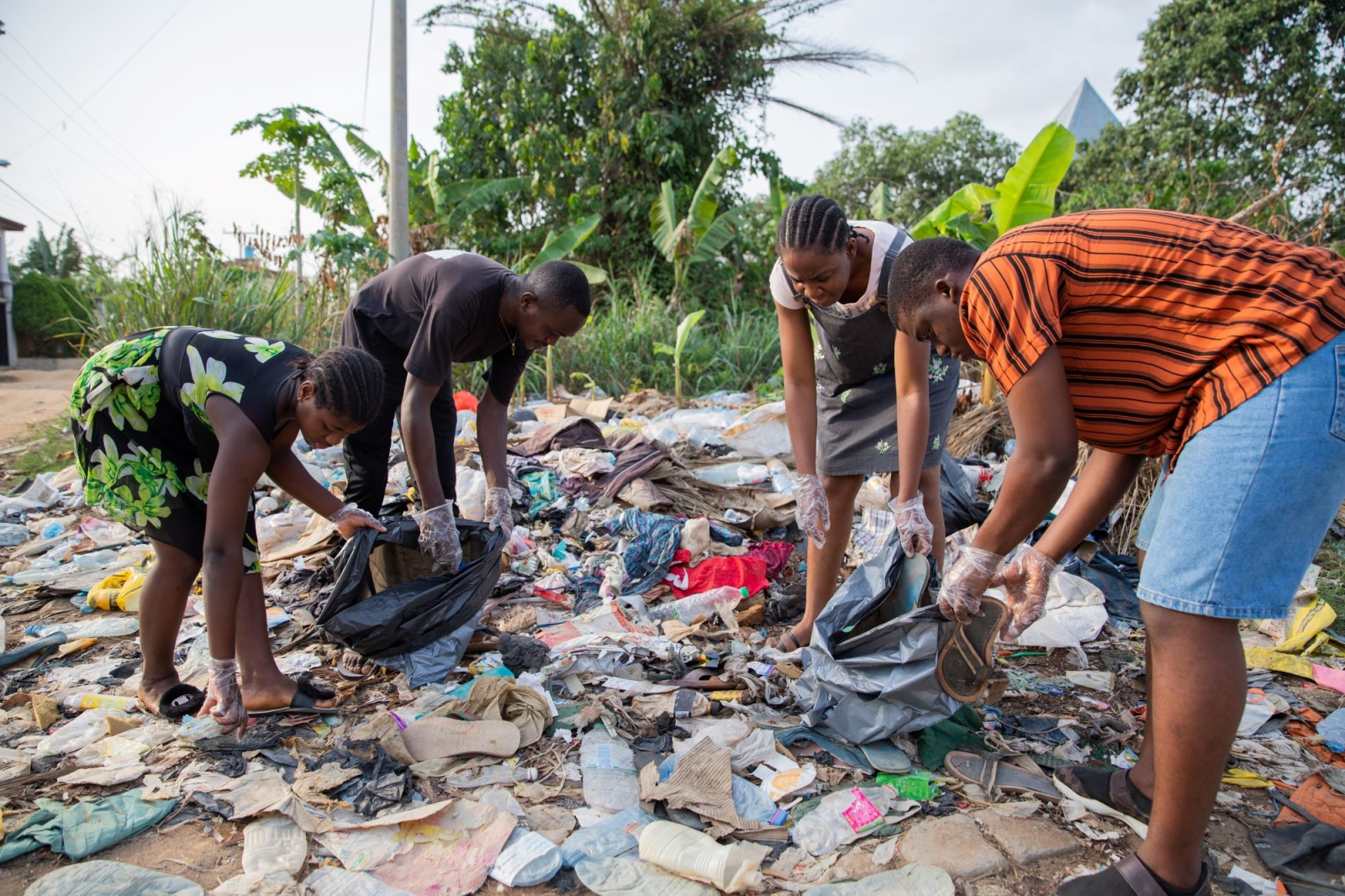A new report by Circle Economy, presented on May 9th found that 84% of current studies on jobs in the circular economy has been developed in northern countries.
Decent work in the circular economy: An Overview of the Existing Evidence Base is a joint report by the Dutch think-tank Circle Economy, best known for its annual Circularity Gap reports, the International Labour Organisation (ILO) and the Solutions for Youth Employment (S4YE) programme at the World Bank.
Mapping jobs in the circular economy
The report, which is the first output of the broader Jobs in the Circular Economy initiative promoted by the three partners, explores research gaps in the sector, in light of five key themes that represent crucial opportunities and challenges regarding the circular economy’s ability to create a more just and inclusive society: labour market and sectoral transformation, informality and the circular economy, work reallocation and skills development, working conditions and social protection, gender discrimination and social equity.
With it, Circle Economy, ILO and S4YE wanted to help realising the full potential of the circular economy through more in-depth and inclusive research on decent work, a global social justice-oriented policy and joint advocacy and data partnerships. According to Alette van Leur, director of the ILO’s Sectoral Policies Department, “there is no doubt that a circular economy can help us reach our climate goals. However, the links between circularity and the achievement of social and economic progress remains overlooked […] and fully unlocking the potential of this new economy requires a just transition that addresses the current inequalities and sub-optimal working conditions currently present in the circular economy. If not managed properly, these issues could continue to impede progress towards a more equitable and sustainable future”.
Green and decent jobs
Two of the most important global employment assessment studies on the circular transition were compiled by the ILO between 2018 and 2019 and updated by the OECD in 2020. These studies show that a global circular economy scenario would create a net total of 7 or 8 million new jobs by 2030.
The ILO defines “green jobs” as “jobs that contribute to preserving or restoring the environment, be they in traditional sectors such as manufacturing and construction or in new, emerging green sectors such as renewable energy and energy efficiency”. If a job is “good for the environment”, however, it doesn’t mean that it’s also “good for workers”: the circular economy may create several green jobs, but these are not guaranteed to be of better quality.
Thus, Decent work in the circular economy urges not only to research and realise the potential for circular job creation in emerging and developing countries, but also to use the increase of circular goods and services as leverage to improve workers’ conditions. Today, all existing research on circular employment in the Global South focuses largely on the number of jobs that can be created, rather than on their quality, with fair wages and good working conditions.
Almost three quarters of workers in low-income countries are employed in the so-called informal economy. They can be dismissed with little or no notice and many companies have weak policies on issues such as fair pay, occupational health and safety and protection of employees from harassment.
In this regard, better data collection and analysis and joint policy advocacy could improve worker protections, alleviate poverty and end discrimination on grounds such as gender.
The gap between Global North and South
Although the circular economy is increasingly popular among businesses and policymakers as a means to reach climate goals, the study shows a huge gap between the Global North and South. According to the report, 84% of current research on employment in the circular economy focuses on countries in the Global North.
While the EU market is expected to be the one reaping the greatest employment gains from the transition, partly because of its strong policy focus, the report’s authors argue that the potential benefits in markets such as Latin America and the Caribbean have not been adequately explored. Sub-Saharan Africa, Eastern Europe, the Middle East and North Africa are the least represented regions in the studies, despite the fact that most circular economy activities take place in the Global South. Such knowledge gaps, says the report, could hinder policymakers’ and businesses efforts to create decent jobs in circular products and services.
Admittedly, while 73% of workers in low-income countries are employed in the informal economy, most research focuses on formal, regulated work. Few studies examine whether and how the circular economy can alleviate poverty and benefit vulnerable communities in low-income countries. These studies have shown how work in waste management offers a meagre livelihood for some of the most marginalised groups – excluded segments of the labour market, such as the elderly, homeless, refugees and migrants – and under informal working conditions, often sub-standard and with no social protection.
“It is not as much the concept of circularity that needs an introduction in these economies, but instead the focus would be on addressing the low-quality, low-paying jobs in the informal sector, with hazardous working conditions and exposure to toxic materials, that are associated with circular activities like waste management, recycling, repair and reuse,” explains Namita Datta, Solutions for Youth Employment initiative manager.
Future perspectives between research and data
Ultimately, the report stands as a starting point towards more in-depth and inclusive research on decent work and the circular economy, focusing on the global South, informal workers and global value chains. In particular, there is a need to thoroughly analyse the impact of the circular economy on key actors and marginalised groups, as well as to ensure their inclusion in the development and implementation of circular interventions.
The importance of research and the centrality of data are reaffirmed in the words of Hatty Cooper, Director of Governments and Institutions at Circle Economy: “Having better data and evidence to understand how the circular economy can create better quality jobs in different industries around the world is crucial for a just transition”.
In the future, it will be essential to produce more localised, city-level, quantitative studies on the potential shortcomings and opportunities of circular economy interventions, as well as reviewing and adjusting current circular economy modelling methods. Lastly, it will also be necessary to identify and adapt globally relevant indicators of employment and decent work in the circular economy.
Image: Envato Elements



